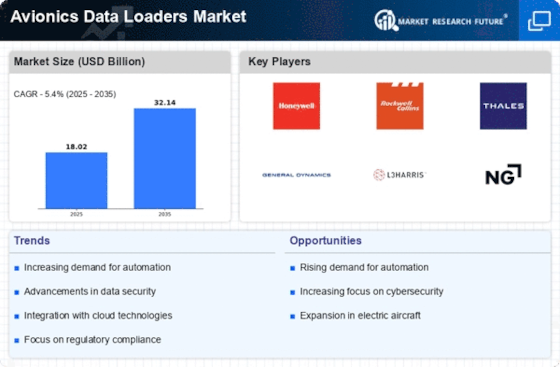Market Analysis
In-depth Analysis of Avionics Data Loaders Market Industry Landscape
According to the latest reports from prominent aviation organizations such as IATA, ICAO, ACI, UNWTO, WTO, and IMF, the international air passenger volume is projected to increase in 2022 compared to 2021. In June 2022, international air passenger traffic witnessed a remarkable surge of 229.5% compared to the same period in 2021, with revenue passenger kilometers (RPK) reaching 65% of the June 2019 levels.
The escalating demand for Avionics Data Loaders is primarily propelled by the growing needs of airlines. Several key factors contribute to the rising demand:
Fleet Expansion: Airlines across the globe are expanding their fleets to meet the surging demand for air travel. As new aircraft join their fleets, it becomes imperative to equip them with the latest avionics equipment. Avionics Data Loaders play a crucial role in efficiently loading software, databases, and configurations onto newly acquired aircraft, ensuring they are ready for operational use.
Advancements in Avionics Technology: Airlines leverage advancements in avionics technology to enhance operational efficiency, safety, and passenger experience. Avionics Data Loaders are essential for loading and updating the latest software versions, databases, and configurations across the existing aircraft fleet. These enhancements may include superior navigation systems, enhanced communication capabilities, or improved situational awareness technologies.
Regulatory Compliance: The aviation industry operates under stringent regulations covering safety, operational standards, and airworthiness. Airlines must adhere to these regulations, and Avionics Data Loaders play a crucial role in facilitating the rapid transfer of regulatory updates, software patches, and configuration files. This ensures compliance with the latest requirements, allowing airlines to keep their avionics systems up-to-date and in accordance with regulatory standards.
Efficiency and Productivity Improvements: Airlines are continuously seeking ways to enhance operational efficiency, reduce costs, and boost productivity. Avionics Data Loaders contribute to achieving these objectives by expediting data transfers between ground systems and aircraft avionics. Efficient data loading assists airlines in optimizing flight planning, reducing errors in human data input, and facilitating quicker access to critical information during aircraft operations.
Data-Driven Decision-Making: The aviation sector increasingly relies on data-driven decision-making processes to enhance operational performance. Avionics Data Loaders play a crucial role in making vital operational data from aircraft avionics systems more accessible. This data can be analyzed, monitored for performance, and utilized for maintenance forecasting. Airlines depend on data loaders to access and leverage this crucial information to improve aircraft operations and decision-making.
Maintenance and Support: Airlines require Avionics Data Loaders for maintenance, troubleshooting, and customer support. These data loaders gather diagnostic data, fault records, and performance information from aviation systems, facilitating more efficient maintenance and support services. Additionally, during maintenance operations, data loaders ensure the secure delivery of software updates and patches.


















Leave a Comment